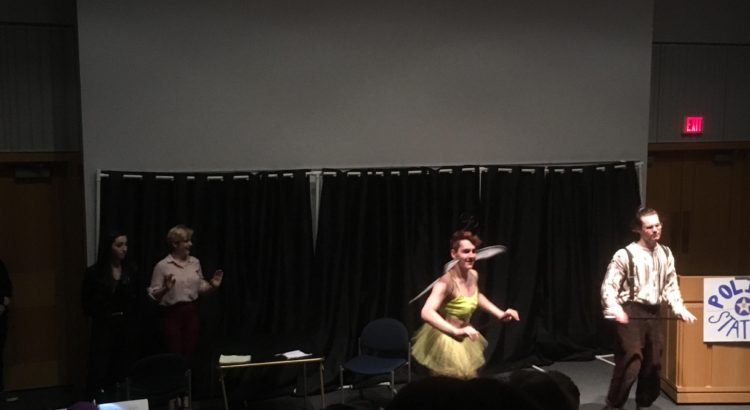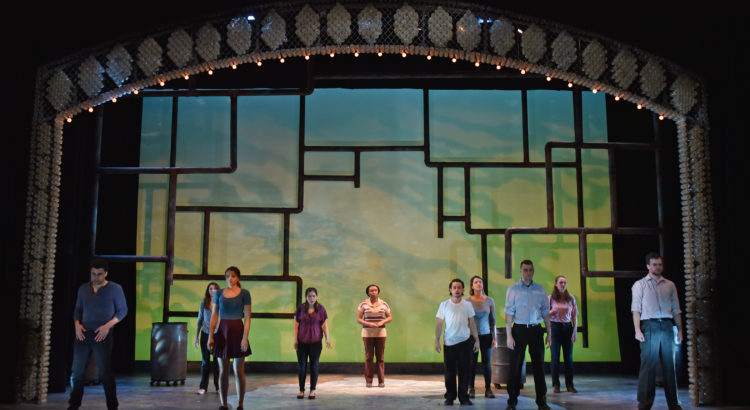A masterpiece of Southern Gothic at its best, Rude Mechanicals put on Tennessee Williams’s iconic play “A Streetcar Named Desire” and executed it with intensity and emotional fervor. Proper and aristocratic-at-heart Blanche DuBois, portrayed wonderfully by Juliana Tassos, travels to New Orleans to stay with her sister after she lost their family plantation, and her lighthearted yet grand arrival soon takes an ominous turn. Stella, played by the talented Stella Kowalski, welcomes her with open arms, yet it is clear that Blanche does not belong in this dilapidated apartment, nor in the life of Stanley, her husband. Jack Alberts executes this intense character with scary yet admirable fortitude, his sudden outbursts captivating our attention with a breathtaking startle. Though Stella and Stanley have an animalistic love and desire for each other, Stanley’s propensity toward violence drives a permanent wedge between him and Blanche while driving the play forward toward its imminent end. Blanche’s Southern mannerism and charms and denouncement of realism directly contrast Stanley’s aggression and manhood and pragmaticism, and this dance between their personalities and views of life lead to an inevitable clash between the two, with Stella caught trying to mediate it in the middle.
The physical and emotional abuse of Stella by Stanley, followed directly by their subsequent embrace, is mirrored by Eunice and Steve, portrayed by Jillian Lee Garner and Jackson Verolini, which shows this unfortunate commonality of brutal marriages within the Southern lifestyle. Though Stella occasionally tries to stand up to Stanley, his loud strength always overpowers her, and she always goes back to him when he calls for her. In the very end, Stella’s fearful and morose isolation in her bedroom and Eunice’s somber reflection on the doorstep while Stanley returns to the next room to play poker shows the distinct separation between the emotionally-scarred women of the play and the misogynistic yet dominant men.
Blanche’s doomed relationship with Mitch, played by Austin D’Ambrosio, reflects her inability to confront her past and face the light. As Blanche’s past is revealed, from her dead husband to her stay in hotels to her forbidden relationship with a student, she slowly withdraws into her fantasies. Stanley’s role in her hysterical breakdown is more than direct, revealing her past to others and furthermore, sexually assaulting her. Blanche’s gradual mental deterioration was painful to watch, yet there was a beauty in Tassos’s performance of it. Her thoughtful and regretful soliloquies throughout the play solidified her tenderness and her talent, even through the pain.
The Southern dialects of the characters, combined with the rapid speed of their delivery, sometimes made it tough to understand their words, but it captured the setting of the place and their frenzy. The lighting and scenery set the mood, as did the foreboding tones that often sounded in between scene transitions. Every character in this play is complex and hypocritical to an extent, and this cast did a phenomenal job bringing these flaws to life and making these characters seem human, however flawed. With Blanche’s unacceptable sexual behavior and Stanley’s abhorrent violence, these characters bring out the best of the Southern Gothic genre, and Tassos, Alberts, and Avnet excelled in putting on this phenomenal production.







